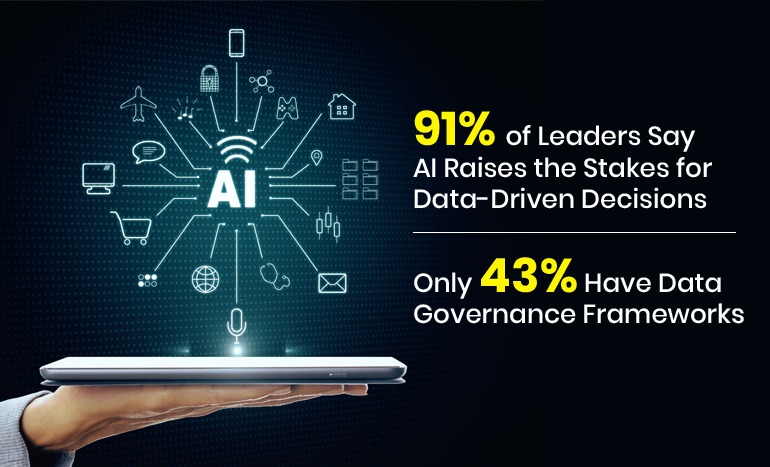Artificial Intelligence (AI) has become a game-changer in content creation, automating tasks that were once very time-consuming and labor-intensive. AI-powered tools are now capable of generating high-quality articles, blog posts, and even poetry by analyzing large datasets of text and producing human-like writing.
However, AI’s influence on content generation is not limited to text; it has also made advancements in multimedia content, such as image, video, and audio generation. AI-powered tools can now transform raw images and footage into visually stunning outputs, and are all set to have a profound impact on the publishing industry.
Text Generation with Artificial Intelligence
AI’s text generation capabilities have advanced significantly in recent years, with platforms like OpenAI’s GPT-4 demonstrating the potential to produce human-like writing. For content creators, this evolution means AI can help in drafting articles, blog posts, and even creative pieces, with greater efficiency.
Audio Generation with Artificial Intelligence
Artificial Intelligence algorithms can now generate or enhance content, including images, infographics, videos, and animations. Tools like DALL-E and Midjourney use Artificial Intelligence to generate original artwork or visual content based on text prompts.
Artificial Intelligence Use Cases for the Publishing Industry
Content Development
Assisted Authoring: AI-assisted authoring streamlines the writing process,
enhances creativity, and ensures content quality by providing real-time suggestions, automating repetitive tasks, and optimizing content for different platforms and audiences. By leveraging Artificial Intelligence, writers can focus more on ideation and creativity, while AI takes care of technical tasks and repetitive aspects of writing. Publishers and authors can use these AI tools to bring uniformity to their content. These tools offer capabilities such as:
- Defining and maintaining a consistent tone throughout the content.
- Ensuring language consistency, including the use of specific phrases across the content.
- Allowing authors to provide instructions for text-generating tools to develop a style guide tailored to the intended audience.
With these AI-driven tools, authors can focus more on the core aspects of content creation rather than spending time on refining the content. This can reduce the overall effort involved in content development by approximately 25-30%.
Editorial Assistance
Copy Editing: Copy editing is a crucial step in the writing process that focuses on improving the clarity, coherence, and overall quality of a piece of writing.
AI-powered tools can eliminate the need for human checks on grammar and syntax by automatically verifying punctuations (commas, periods, semicolons,) and correcting spelling mistakes, including typos and homophones.
Content Enhancement: AI can significantly enhance the quality, engagement, and effectiveness of content. It can analyze current trends and recommend topics, reducing brainstorming time by up to 50%. Once the content is created, AI tools can assist in identifying high-performing keywords and phrases to boost search engine visibility. For example, the mon’k meta tag extractor can generate keywords from content within a few minutes, improving SEO and potentially increasing organic traffic by 20-30%, if effectively implemented.
AI can also optimize readability and SEO by suggesting headings and subheadings, enhancing user engagement by about 15-25%.
Reference Check & Contradiction Check: AI tools can greatly improve content accuracy and credibility by automating reference and contradiction checks. AI can quickly verify the credibility of sources used in the content and can also cross-reference citations with trusted databases and academic journals, ensuring that claims are backed by reliable sources.
Additionally, AI can compare statements in the content against databases of verified facts, statistics, and published research, identifying false claims or outdated information.
It can leverage APIs to access extensive databases, scholarly articles, and other resources to verify claims and references, improving the depth of the review process. Tools like the mon’k AI editorial assistance use multiple AI agents to automatically perform reference and contradiction checks for the author.
For healthcare, the AI agent is connected to the Unified Medical Language System (UML), providing access to a comprehensive database of medical terminology and knowledge. This connection enhances its ability to verify claims and references, ensuring content accuracy and alignment with the latest medical standards and guidelines.
Content Transformation With AI
AI can play an important role in content format conversion, making it easier to repurpose, reformat, and adapt content across different platforms and mediums. For example, mon’k platform has built-in agents and AI algorithms that can convert non-interactive PDF content into an interactive EPUB format.
AI-powered TTS (Text-to-Speech): AI-powered TTS technology can create spoken audio for written content. With the help of AI agents and algorithms, content managers can fine-tune the audio output for their intended audience, by specifying voice type and dialect. This eliminates the need for human involvement in creating and recording audio entirely.
PDF Text Extraction: AI tools can analyze the structure of PDF files to accurately extract text while preserving formatting elements, such as headings, paragraphs, and lists. This is especially useful for complex PDFs that contain multiple columns, tables, or non-standard layouts.
AI-Powered OCR for Scanned PDFs: AI-based Optical Character Recognition (OCR) tools can detect different fonts, languages, and text orientations, ensuring accurate text recognition and conversion, even from
imperfect or low-quality scans.
Maintaining Reflowability: AI tools ensure that during the conversion process, content remains reflowable without losing critical formatting or structure, providing an optimal reading experience on devices like smartphones, tablets, or e-readers.
Using AI for format conversion will help publishers improve efficiency, and offers several other advantages
- Speed of Conversion: AI-powered tools can convert PDF files into ePub formats within minutes, eliminating the need for manual reformatting.
- Error Reduction: Manual conversion can often introduce errors, such as misaligned images, incorrect formatting, or lost text. AI reduces these risks significantly.
- Scalability: AI allows for the batch processing of large numbers of PDFs simultaneously, providing scalability that is invaluable for publishers.
Authored by: Abhishek Kumar







